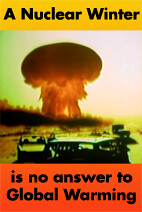The white man's burden: Howard's attack on Aboriginal self-determination
Howard's 'new paternalism' is one of the most far-reaching attacks on Aboriginal self-determination in recent years.
One of the most fundamentally troubling things about the Howard government's emergency intervention to tackle child abuse in Aboriginal communities in the Northern Territory is that it attacks and undermines Aboriginal self-determination.
There have been many indications that John Howard finds Aboriginal self-determination and cultural sovereignty antithetical to his values and political worldview. His recent attacks on Aboriginal land rights in the Northern Territory have been part of his overall desire to dismantle the institutions, supports, features and principles of Aboriginal self-determination. Now, with the declaration of a national emergency to deal with child abuse in the communities, Howard's Indigenous Affairs Minister, Mal Brough, has handed him the means to further undermine Aboriginal self-determination. Unfortunately, the result will be to undermine NT Aboriginal communities' capacity to effectively deal with family violence and the abuse of children in their communities – the inverse of what Howard claims his plan will achieve.
The Howard-Brough plan clearly attacks self-determination through such moves as seizing control of 70 Aboriginal controlled communities and townships in Northern Territory and forcing Aboriginal parents to meet stringent conditions in return for their welfare and family support payments. All this on top of the ‘law and order’ approach of sending in extra police and military to spearhead the ‘campaign’. This is the ‘shock and awe’ aspect of the Howard-Brough plan, (the overtly militaristic tone in the government spin is no accident).
The most insidious aspect, though, is the giant lie Howard is perpetrating on the Australian public that Indigenous leaders have had 20 or 30 years to tackle these problems ‘their’ way – the 'old' way – and failed, and so now is the time for the government’s, i.e. Howard’s, way – Howard’s ‘new paternalism’.
Apparently, Howard is referring to the twenty to thirty years that Indigenous communities have had various means of self-determination implemented since the Whitlam era. The lie is that Indigenous people’s way – the self-determined way – have had all the time, resources, means and people to address the problems plaguing their communities, but have squandered them and failed and so engendered this crisis in the first place.
By effectively saying 'your way failed, now make way for our way – we will do what is needed to protect children,’ Howard is simultaneously trying to wash his hands of over a decade of neglect, chronic under-funding (and in many cases de-funding), and destabilisation of organisations, initiatives, resources and basic services for Indigenous people by his government, and blame the problem on Indigenous people and their leaders to justify his jackboot actions.
It also allows him the grandiose (or rather grotesque) gesture of taking up the white man's burden and inviting the rest of Australia to join him.
Through the declaration of a national emergency and showy, dramatic moves that emphasize a sense of crisis and urgency, Howard has garnered a great deal of public support for appearing decisive and proactive – to show that finally, 'something is being done to help the children'. And he has pulled a classic ‘Pauline Hanson’ – just as so many Australians bought her lie that a river of money was being soaked-up by Indigenous people rolling in their special privileges, unfortunately so are many members of the public today, by many accounts, buying Howard’s lie that Indigenous people tried but failed to tackle alcohol, family violence, abuse, and dysfunction.
The truth is, there have been many great successes by Indigenous people in tackling child abuse, family violence, and stopping alcohol abuse. The truth is that there are a great many Indigenous leaders who have for many years been identifying the problems – and the solutions – to the Howard government (and governments before his) and calling for national action and funding to tackle the problem effectively and in concert with Indigenous communities and their organisations – to no avail.
Only, if Howard were to admit that Indigenous communities have been offering the solutions all this time, then he would also have to admit that he had failed to support them in ways that counted – that he, in fact, had failed to help prevent child abuse in Aboriginal communities. And that just wouldn’t do for Iron John, would it? Oh, no. Not during an election year. Besides, it’s far more convenient to blame Indigenous people and their self-determination.
Labels: Australia, children, Indigenous, politics
Read more!













